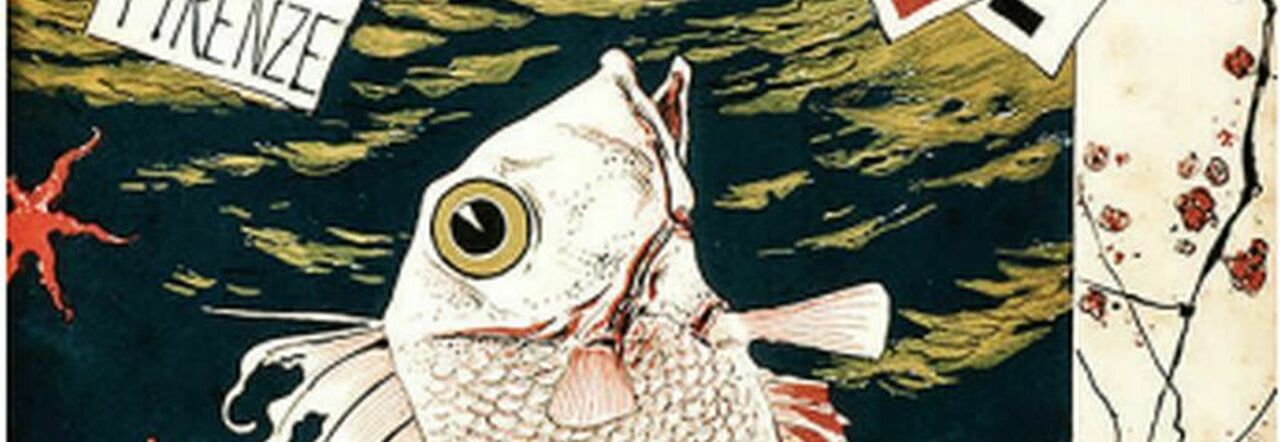Two new releases in the highly appreciated 'O scarrafone' series by the publisher-bookseller from Port'Alba Pasquale Langella: books of small format but with great content.
The first little book (costing 6 euros, released on March 26) is Giuseppe Pesce's “April Fish”. Where, when, and why this very particular tradition was born is still a debated issue, despite numerous research attempts to solve it. It is certain that in Italy as in France, in Germany as even in India, the custom of dedicating the days around March and April to planning and executing pranks, often ingenious, at the expense of the unfortunate victim, has existed for many centuries. In this tasty volume, Giuseppe Pesce, a journalist and historian with a knowledgeable pen, taking inspiration from the “notes” dedicated to the topic by Giuseppe Pitrè, retraces the spread of April Fool's Day and testifies to its vitality over time and space.
“This little book was supposed to come out last year, but – considering the subject matter, and with the excuse of transforming the monotony of Life into Art – I played a joke on the publisher, to mask my guilty delay. For someone like me, who celebrates April 1st as a sort of 'name day', the curiosity about April Fool's is almost innate, which is first and foremost satisfied by the beautiful research that the ingenious Giuseppe Pitrè published from 1886 in his fascinating studies on popular traditions, – updating it repeatedly until the early twentieth century” is the author's introduction.
A month later, the release of the booklet “Titina. The Sentinel of Port'Alba” by Francesco Russo, from Cilento, a criminal lawyer in Naples for more than forty years, passionate about history and southern dialects. A heartfelt tribute to a character who for years characterized the historic center of Naples. The memory of a city's places is not made up only of the buildings that compose them and the historical events that took place there, but also by the stories of those who lived and worked there day after day, contributing with their experiences to the construction of the collective identity. In this small book, Russo affectionately recounts a corner of Naples, Port'Alba and its surroundings, recalling the microhistory of Titina, the newsstand lady, stationed like a sentinel in her kiosk, which in turn intertwines with those of other souls: Giannina, who sold cigarettes with the grace of a florist; Giovanni, an expert connoisseur of vintage images; Fra Crescenzio, the lay brother of Santa Chiara convinced to make Bach and Beethoven play through his bells.
“Probably you do not know who Titina was and how much she meant for so many of us who lived, as if it were our own home, that magical circle of Naples that includes within a radius of fifty meters the walls of Port'Alba, via Costantinopoli, Piazza Bellini, via San Sebastiano, and via San Pietro a Majella. Well, Titina was the Genius Loci of that corner of the world frequented by students, musicians, intellectuals, teachers, booksellers, professionals, artists, and the strangest people who had her as their point of reference,” Russo recounts.

